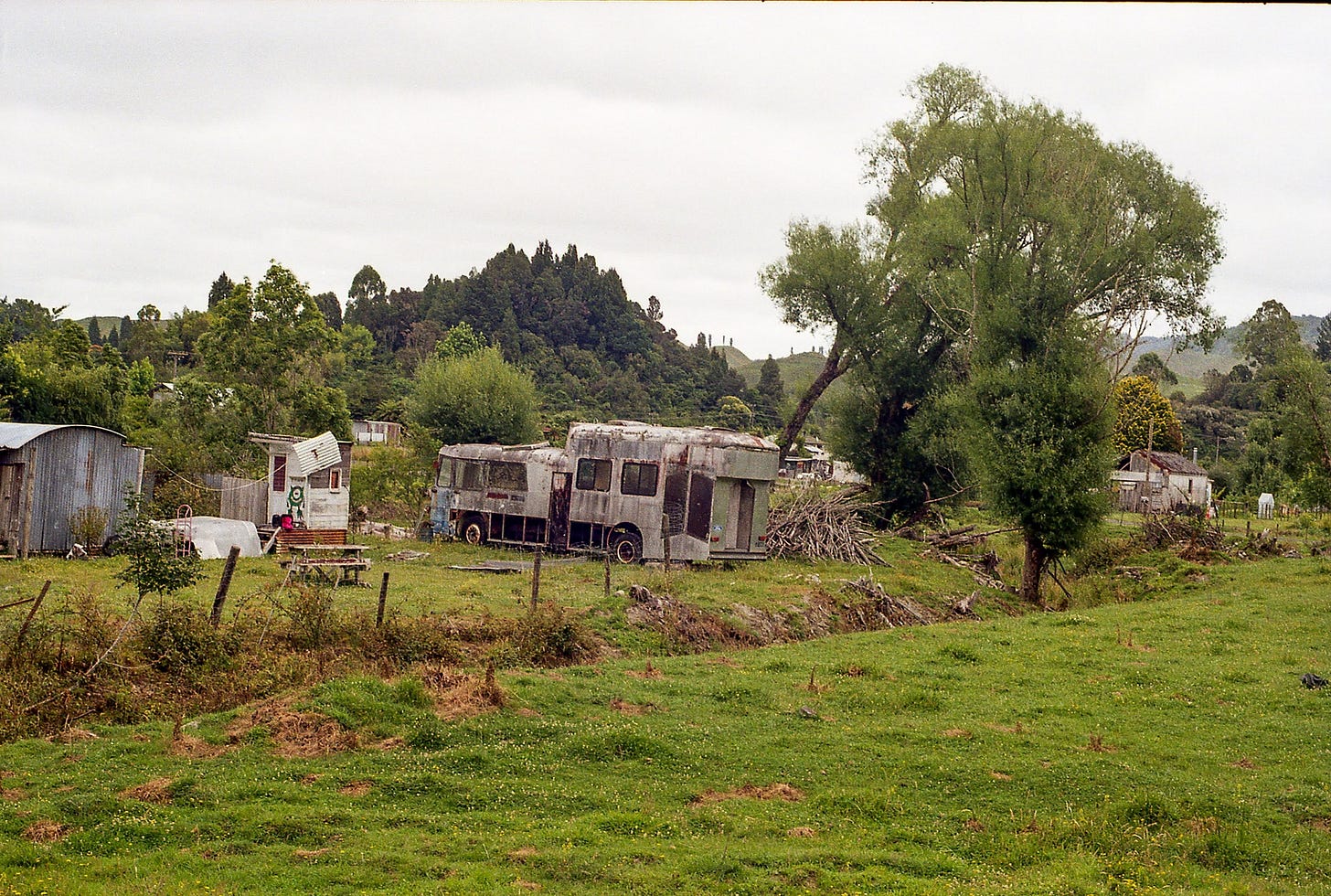Some of Owen Marshall’s finest offerings are on display in The Divided World. These include funny slice-of-life things, like The Paper Parcel, in which a College boy is encouraged by his parents to go to the formal dressed as a parcel, much to the ridicule of his friends and his date. Owen Marshall is equally capable at serious stories. In these he paints a rural New Zealand of muted emotions and hidden passions. The fundamental tension is between dignity and emotional openness. The narrator in Thinking of Bagheera, a young boy, shoots his sick cat to put it out of its misery, producing a mixture of disgust and indignation in his dad, who can't understand why he couldn't just "leave the wretched thing alone." The kid's actions are informed by a private experience of the world that no-one else comprehends. The story ends:
I lay in the evening warmth and watched a pumpkin flower only inches from my face. The image of the pumpkin flower was distorted in the flickering light and shade beneath the leaves. The gaping, yellow mouth and slender stamen nodded and rolled like a professional Chinese dragon; the ones they have at weddings and funerals.
No such dignity comes to the old man in Descent From the Flugelhorn, an ex-Rugby legend on the verge of death. Two door-knockers have come to his house to collect money for the local Rugby club. They have a conversation so awkward they try to leave it multiple times (foiled by the old man's hard of hearing). And then the old man slumps dead in his chair. For Wayne, one of the door-knockers, it's too much. He leaves abruptly and has a break-down on the side of the road. His partner sits next to him, and after a good cry and a brief exchange, they're on their way. "It was all we had to say about it, and it was enough."
The characters in these stories often recognise the significance of events that others do not. They act in ways which are fundamentally misunderstood and in doing so risk ostracism, like in The Master of Big Jingles. Two boys drift apart after they're sent to rival schools. A fight between the two schools serves as an opportunity for them to formally end their friendship. After his side gets a hiding, his schoolmates make excuses about why it wasn't actually a fair fight, and the narrator glibly remarks to himself, "They could say what they liked, but for myself I knew I'd lost all right. And it was worse that as I climbed from the fennel, up onto the road, I could understand what it was I'd lost and why."
An inversion of characters acting out of misunderstood dignity comes in the tragicomic Voice of the Cosmic Warlord, where a voice actor for a cheesy Sci-Fi show narrates his failing life. We learn of his crumbling flat, irregular work, estranged wife and child, and his ugly girlfriend who repeatedly nags him that "there is something I've been meaning to tell you,"--we never find out what. Instead of listening, he interrupts her to expound on the literary qualities of his corny, Galaxy Quest-like show - a show so shit not even its creator likes it. Cajoled along by his humour and optimism, we don't feel the pity we should. Instead, it's a real-estate agent who pities him for us when he leases a flat to the failing voice actor, who finally recognises that he's a screw-up. He narrates this realisation like an intergalactic villain that has finally been defeated for good.




